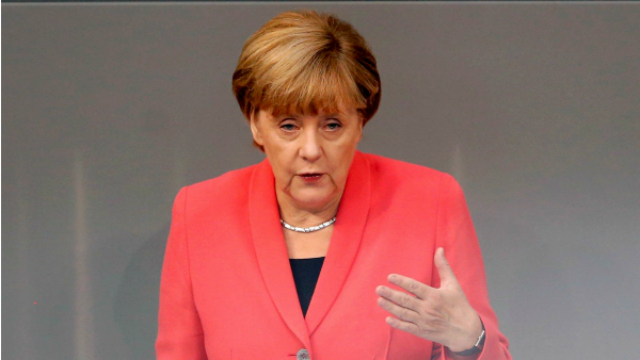
by Robert Whitcomb | May 28, 2016 | Initiative
(May 30th, 2016) German Chancellor Angela Merkel said on May 26 that the Group of Seven will not end sanctions on Russia over its involvement in the conflict in eastern Ukraine and its seizure of Crimea.

“For me it’s too early to give the all clear,” Ms. Merkel said in Japan, where she was attending the G7 Summit.
“There is no change of position to be expected” from the G7, she said. Earlier that day European Council President Donald Tusk, also at the summit, said that the G7 needed to take a “clear and tough stance” toward Russia for its moves in Ukraine — as well as toward China for its controversial claims and militarization in the South China Sea.
“The test of our credibility at the G7 is our ability to defend the common values that we share,” he told reporters at the Japan talks. “This test will only pass if we take a clear and tough stance on every topic of our discussions here.”
Ukraine and its Western allies believe that Russia seized and annexed Crimea from Ukraine in March 2014 and fomented an insurgency in the country’s east to keep a grip over the former member of the Soviet Union, and especially to prevent it from seeking membership in the European Union and NATO.
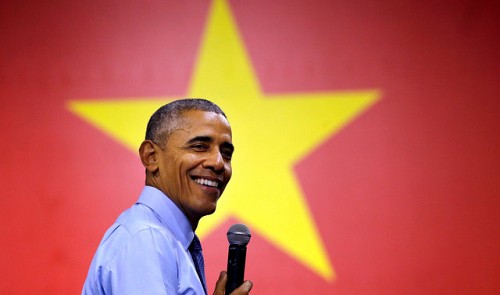
by Robert Whitcomb | May 28, 2016 | World Leaders in AIWS Award Updates
(May 30th, 2016) This link will take you to a description of the program in Vietnam of the UNESCO Chair in Global Learning and Global Citizenship Education, with which The Boston Global Forum has been collaborating closely.

The program has been working in Vietnam since 2015 with a project called “The University in Transition: Policy Research Addressing Major Challenges In The Institutions Of Higher Education In Vietnam.” This project has support from private sources in Vietnam and strong collaboration from government institutions.
This is part of the ongoing strong reconciliation of Vietnam and the United States, symbolized by President Obama’s trip this past week to Vietnam. He was the third U.S. president, after Bill Clinton and George W. Bush.
This report provides a detailed description of the objectives and rationale of the project in the context of the overall challenges to higher education in Asia. It also looks in general at the challenges for higher education in Vietnam and the United States.
by Robert Whitcomb | May 28, 2016 | Initiative
(May 30th, 2016) Pavan Duggal, an Indian cyberlaw and cybersecurity expert, warned that as governments around the world struggle to stop cyberattacks and data breaches, India needs to come up with a more comprehensive legal approach and framework to address various issues in cyberspace. Read this link to The Times of India story.
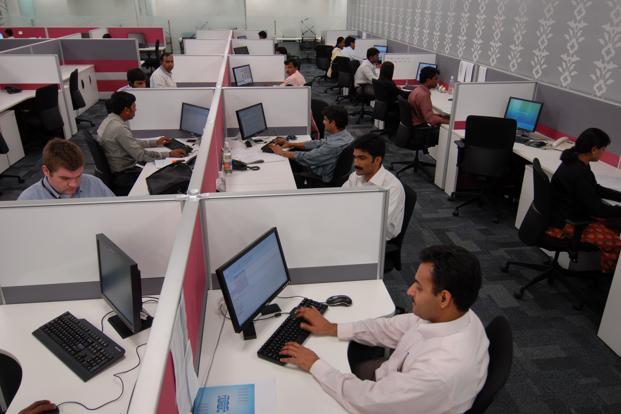
“Today, a lot of work in personal, professional, social and governance space is being done on the internet. Therefore, there is a need to look at the issues in cyberspace. It is here that issues like cyberlaw, cybercrime and cybersecurity come in,” Mr. Duggal, president of cyber laws.net and a lawyer who argues before the Indian Supreme Court, said at meeting on cyberlaw, cybercrime and cybersecurity in New Delhi.
He warned that, given recent cyberspace trends in India, cyberterrorism and political radicalization via the Internet are going to hit big time in India.
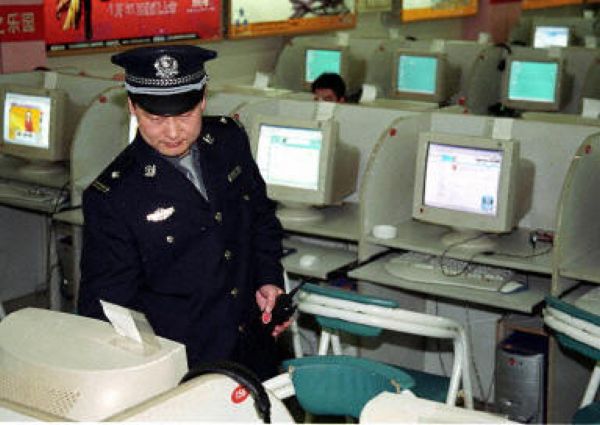
by Robert Whitcomb | May 28, 2016 | Initiative
(May 30th, 2016) Despite hopes that China’s ever-tougher censoring of the Internet to keep away challenges to the dictatorship of the Communist Party would be cracked, in fact that censorship seems to be increasingly effective.

As this first in a series of articles in The Washington Post about the ‘’Great Firewall of China’’ notes:
“Far from knocking down the world’s largest system of censorship, China in fact is moving ever more confidently in the opposite direction, strengthening the wall’s legal foundations, closing breaches and reinforcing its control of the Web behind the wall.’’

by Robert Whitcomb | May 27, 2016 | AI World Society Summit
(May 30th, 2016) The Obama administration released its final data policy framework establishing security expectations for organizations that participate in the Precision Medicine Initiative (PMI).

“The 10-page framework, which builds on the National Institute of Standards and Technology’s cybersecurity framework, is intended to be adaptable to the various participating PMI groups and is aimed at providing a broad framework for protecting data and transparency,’’ HealthcareDIVE reported.
It said that the framework includes eight overarching principles:
- Setting a ‘participants first’ orientation that engenders trust.
- Ensuring that security processes are adaptable to keep pace with technological advances.
- Seeking to preserve data integrity.
- Identifying key risks to security, while enabling research to progress.
- Developing clear expectations and transparency around security processes.
- Ensuring that security controls protect data, while maintaining access to those who need the data.
- Minimizing exposure of participant data.
- Sharing experiences and challenges with other PMI organizations.
by Robert Whitcomb | May 27, 2016 | Initiative
The Guardian reports that, Symantec, an Internet security-research firm, have found clues in the malware used to hack into international financial-messaging network Swift that suggest a link to the Sony Pictures hack in 2014. That hack has been attributed by many to North Korean hackers, acting at the direction of the North Korean regime in retaliation for a movie called The Interview that made fun of dictator Kim Jong-un. Read this link.
The Guardian reported that Swift itself has vowed to improve its security following the hacks. Swift Chief Executive Gottfried Leibbrandt said: “Banks can learn from one another about the modus operandi and put better preventive measures in place; entities like Swift can serve as the information-sharing channel, and we can develop indicators of compromise to help those banks improve their detective capabilities.’’
“We are doing so. But information sharing needs to get better, much better.”

by Robert Whitcomb | May 27, 2016 | Statements, Event Updates
(May 30th, 2016) G7 Summit host Shinzo Abe, the Japanese prime minister, said he and the other leaders of the most important industrialized democracies share a strong “sense of crisis’’ about the global economic outlook.

(From L-R) Sri Lanka’s President Maithripala Sirisena, German Chancellor Angela Merkel, Chad President Idriss Deby Itno, U.S. President Barack Obama, Japan’s Prime Minister Shinzo Abe, French President Francois Hollande and President of Indonesia Joko Widodo attend a family picture along with other world leaders during the final day of the Group of Seven (G7) summit meetings in Ise Shima, Japan May 27, 2016. REUTERS/Carlos Barria
G7 leaders wrapped up a summit in central Japan by, among other statements, vowing to use “all policy tools” to boost demand and ease supply constraints.
“Global growth remains moderate and below potential, while risks of weak growth persist,” they said in a declaration. “Global growth is our urgent priority.”
Mr. Abe referred to current parallels to the global financial crisis that followed the 2008 Lehman Brothers collapse.
“The most worrisome risk is a contraction of the global economy,” led by a slowdown in developing nation economies, he told reporters after chairing the two-day summit. “There is a risk of the global economy falling into crisis if appropriate policy responses are not made.”

by Robert Whitcomb | May 27, 2016 | Initiative
(May 30th, 2016) As usual in such encounters, North Korea threatened retaliation after South Korea on May 27 fired what it called warning shots when a patrol boat and fishing boat from the North crossed the disputed sea border off the west coast of the Korean peninsula.

North Korean leader Kim Jong Un attends the first congress of the country’s ruling Workers’ Party in 36 years, in Pyongyang, North Korea, in this photo taken by Kyodo May 9, 2016. Mandatory credit Kyodo/via REUTERS
The two vessels from the North retreated about eight minutes after the South Korean navy fired five artillery shots, South Korean officials told Reuters.
The North Korean boats had crossed the Northern Limit Line, a border that the North disputes, near the South Korean border island of Yeonpyeong, according to the South Korean military.
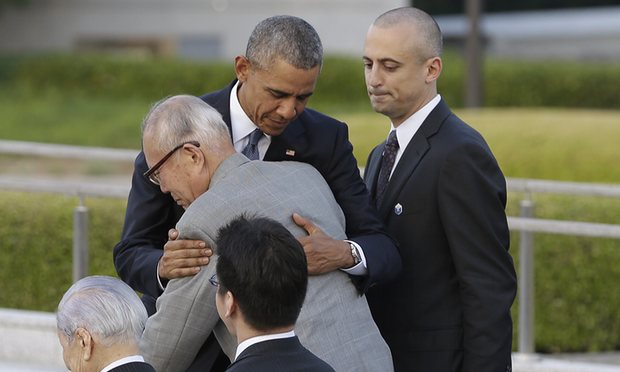
by Robert Whitcomb | May 27, 2016 | Initiative
(May 30th, 2016) President Obama, making the first visit to Hiroshima by a sitting U.S. president, asked the world to consider the site of the first atomic bombing as “the start of our own moral awakening.’’ He was in Japan to attend the G7 Summit.

Mr. Obama, in somber and quietly emotional remarks, called on humanity to learn the lessons of the past to make war less likely and embraced a 79-year-old survivor of the U.S. attack.








